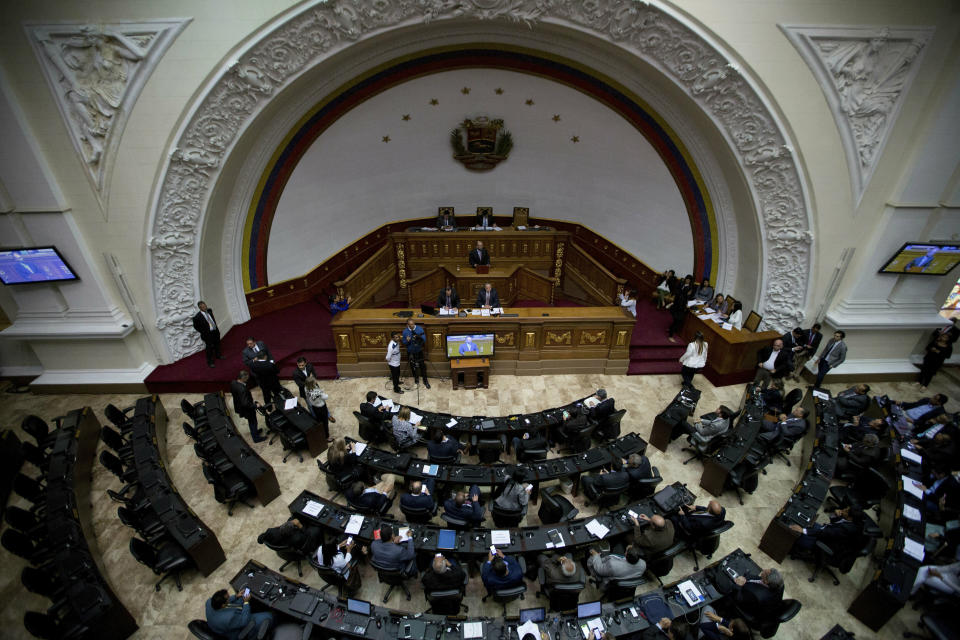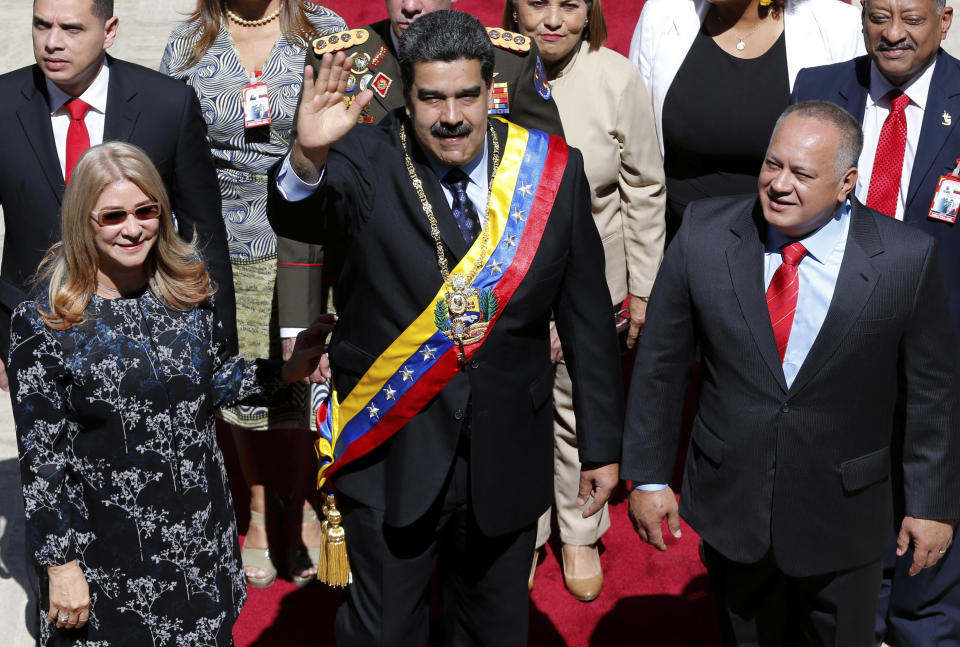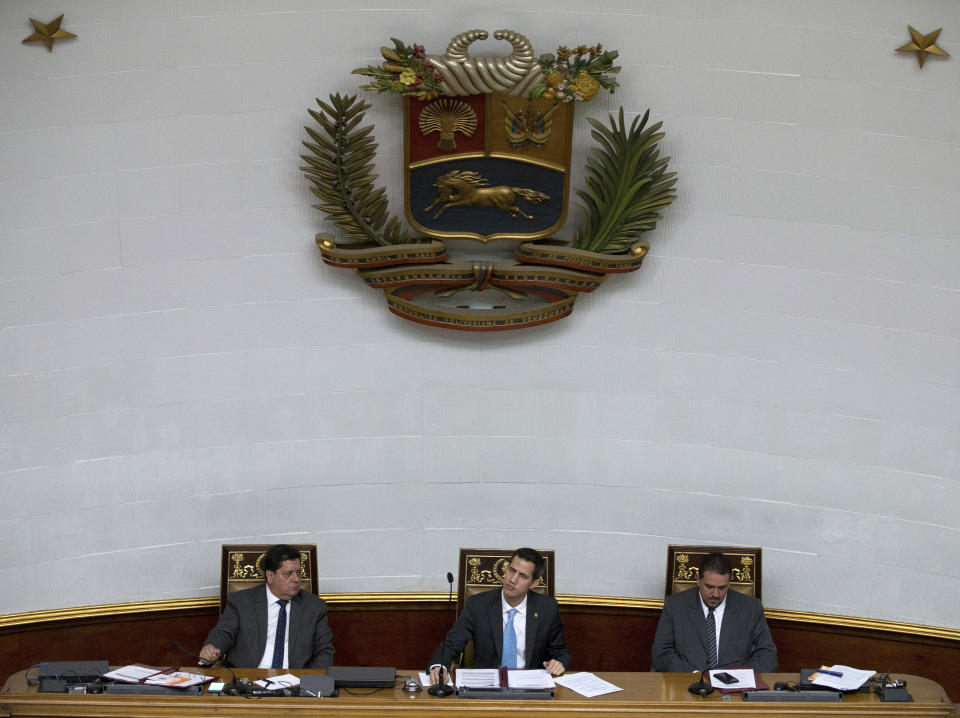Venezuela opposition tries luring soldiers away from Maduro
CARACAS, Venezuela (AP) — Opposition lawmakers in Venezuela moved Tuesday to pry the military's loyalty away from President Nicolas Maduro, offering protection to members of the armed forces who support a transitional government.
Congress passed declarations finding Maduro's rulings invalid and giving amnesty to members of the military who help in "restoring constitutional order" to Venezuela. They say Maduro's second term, which began Jan. 10, is illegitimate and accuse him of usurping the presidency.
Maduro has cultivated a stronghold within the military by appointing generals to powerful government posts even as Venezuela collapses in a historic economic and political crisis, creating steep challenges for the anti-Maduro politicians.
"It's not going to be simple after 20 years of repression," said Juan Guaido, who leads the pressure against Maduro as president of the opposition-controlled National Assembly.
Maduro maintains that he's Venezuela's democratically elected president, though the Organization of American States and a number of other nations have declared they do not recognize the legitimacy of his second term due to allegations of electoral fraud.
The most popular opposition parties were banned from running in the May presidential election and leading opposition politicians were jailed or driven into exile.
Diego Moya-Ocampos, an Venezuela analyst with the London-based consulting firm IHS Global Insight, said the military would be a key player behind the scenes to drive any chance of a regime change. The opposition is offering the armed forces incentives to break away rather than continue supporting Maduro, he said.
"They're laying the institutional grounds for both the military and the police in an eventual transition," Moya Ocampos said. "It gives them incentives to defect rather than to collaborate with the Maduro regime."
Many of Maduro's critics argue that the presidency is legally vacant and the 35-year-old Guaido is constitutionally in line to lead an interim government.
Guaido says he's ready to step into the presidency temporarily and call for new elections, but only if he sees support from the military and common Venezuelans in nationwide street demonstrations set for later this month.
OAS Secretary-General Luis Almagro has already recognized Guaido as president and U.S. Sen. Marco Rubio of Florida, a staunch Maduro foe who has President Donald Trump's ear on Venezuelan issues, said he has asked Trump as well to acknowledge Guaido's leadership.
"Over 60 countries including the U.S. have stated that Maduro is not the legitimate President of #Venezuela," Rubio tweeted on Tuesday. "I have asked @POTUS to recognize @jguaido as the legitimate transitional President of #Venezuela if the National Assembly invokes" its constitutional authority.
Maduro has largely ignored congress, arguing that it is outranked by a pro-government constitutional assembly. The pro-Maduro Supreme Court earlier had ruled that acts of the opposition-dominated congress are invalid.
"Anyone who wants to mock the constitution and play politics, well, he'll have to face the constitution, the laws and the courts," Maduro said without mentioning Guaido. "The courts will put things in their place as always."



